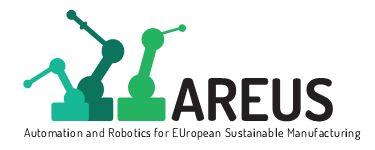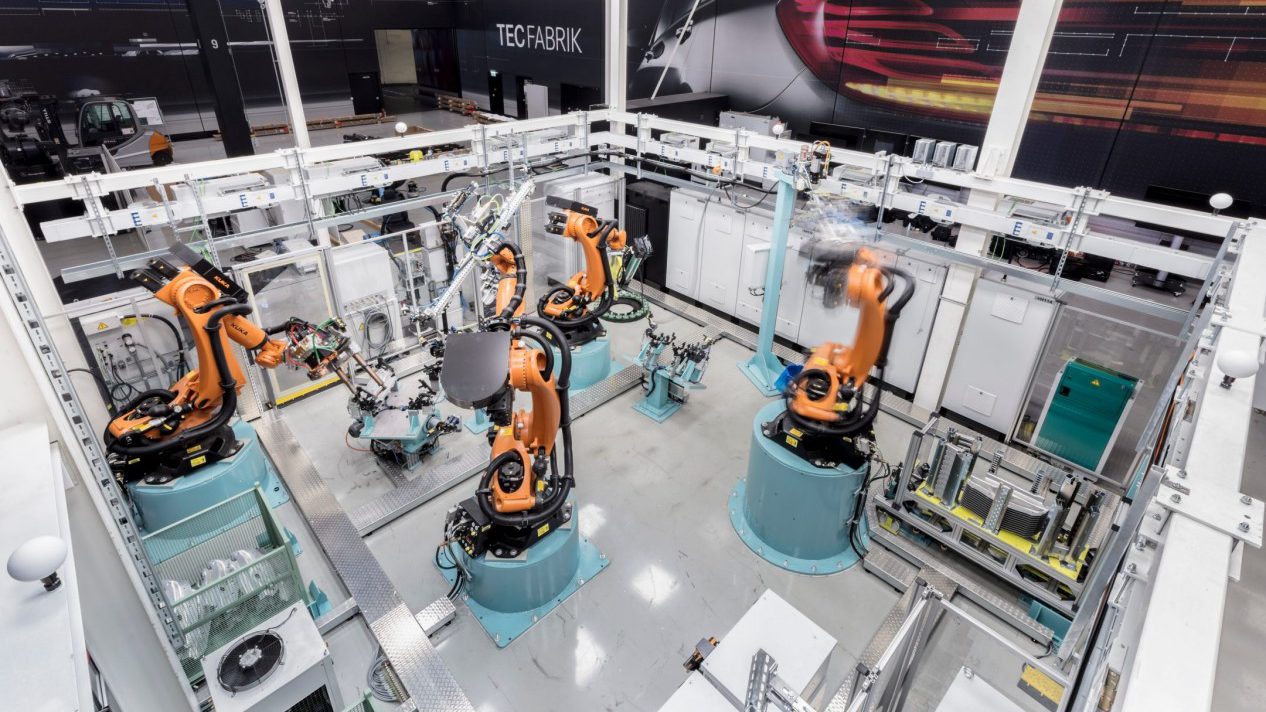AREUS

Programme: FP7 NMP – Nanosciences, Nanotechnologies, Materials and new Production Technologies
Topic: FoF.NMP.2013-1 Improved use of renewable resources at factory level
Project Coordinator: UNIMORE (Prof. Marcello Pellicciari)
Start year: 2013 EU Website: https://cordis.europa.eu/project/id/609391
Project website: http://www.areus-project.eu/

Description
Context
The project investigates the contect of the Factories of the Future that will have to be smart and green:
SMART: high performance, reconfigurable, adaptive and evolving factories based on robotic technologies,
GREEN: reduced ecological footprint through a more efficient use, at factory level, of material and energy resources. Industrial Robotics is, unfortunately, intrinsically energy intensive, and its massive adoption in the manufacturing industry compromises factories sustainability. The AREUS project objective is to overcome this limitation providing an innovative integrated technology and engineering platform, intrinsically interdisciplinary, modular and configurable.
Project
The AREUS project is based on four innovations:
1. An integrated set of Energy Consumption reduction technologies (R-ECO) based on a novel factory electrical power supply system to exchange, harvest, store and recover energy at factory level
improving the use of renewable energy sources;
2. A Robotic production systems Integrated Design and simulation environment (R-ID) for the eco-efficient design of robotic plants focused on the simulation of energy flows under a co-evolving product-process-robotic production systems approach;
3. A Robotic manufacturing processes OPTimization environment (R-OPT) for the optimal sustainable production scheduling under a control engineering approach;
4. LCA methods (R-LCA) to assess and optimize both environmental and economic costs linked with the flows of Material, Energy and Waste (MEW) of co-evolving products and processes realized with robotic production systems.
These building blocks will enable the modular and scalable/progressive development of singularly optimized sustainable robotic manufacturing applications (or the re-adaptation of existing production facilities) and will be demonstrated on 7 industrial case studies for their future exploitment.
XiLAB defines new methods for optimizing the layout position of multiple industrial robots and energy efficiency.
Media
Related publications
Gadaleta, M., Berselli, G., Pellicciari, M., & Sposato, M. (2017). A Simulation Tool for Computing Energy Optimal Motion Parameters of Industrial Robots. Procedia Manufacturing, Vol. 11, pp. 319-328.
Grebers, R., Gadaleta, M., Paugurs, A., Senfelds, A., Avotins, A., & Pellicciari, M. (2017). Analysis of the energy consumption of a novel DC power supplied industrial robot. Procedia Manufacturing, Vol. 11, pp. 311-318.
Gadaleta, M., Pellicciari, M., & Berselli, G. (2019). Optimization of the energy consumption of industrial robots for automatic code generation. Robotics and Computer-Integrated Manufacturing, Vol. 57, pp. 452-464.
